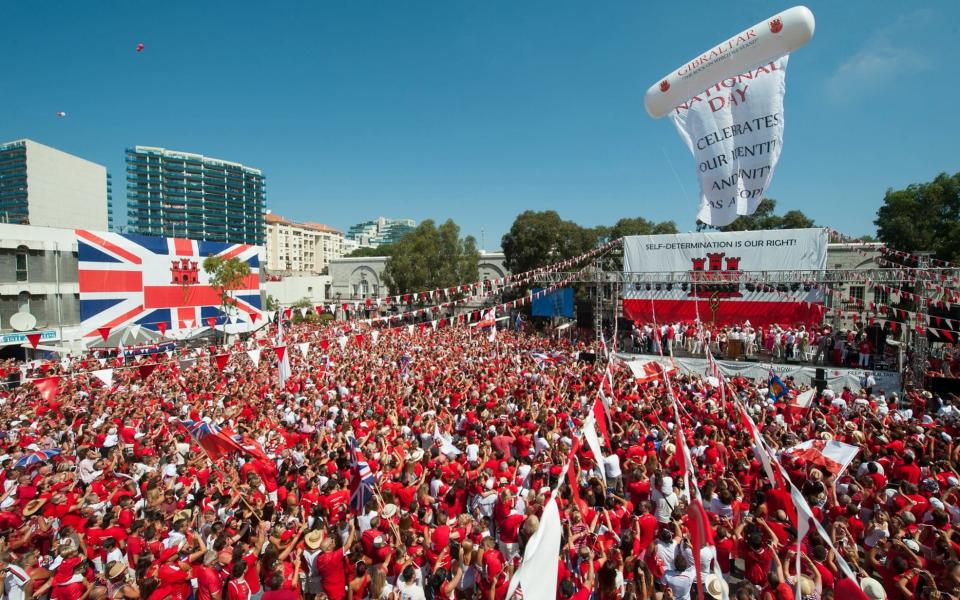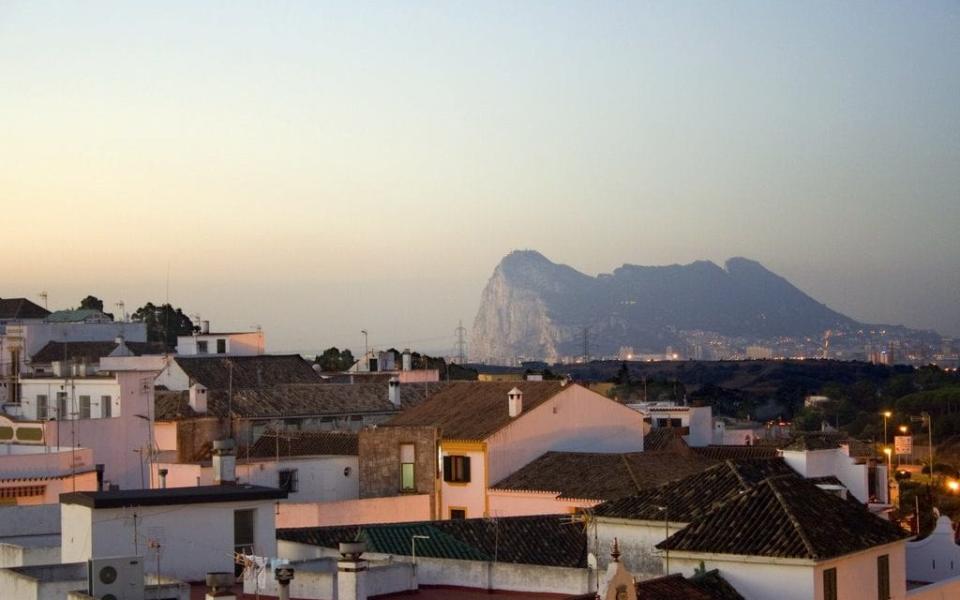Six reasons Gibraltar is not and never will be Spanish

Every once in a while, usually during a domestic Spanish scandal, Spain decides to kick up a fuss about British rule of Gibraltar. Eventually it all comes to nothing. Nevertheless, it's worth going through the main reasons why Gibraltar is not Spanish, and won't be anytime soon.
Lets be clear from the outset. Spain's legal claim to Gibraltar is weak. It does not dispute the Treaty of Utrecht of 1713, the document which formally ceded the Rock to the British "in perpetuity".
Instead it bases its argument on territorial integrity, calling Gibraltar a colonial relic (hypocrisy you may cry, but don't worry, we'll get on to that point).
Knowing that its legal case is weak, the Spanish government also refuses to acknowledge Gibraltar's territorial water, or its airport which is built partly on reclaimed land and on the isthmus, which was not explicitly covered by the treaty.

The people of Gibraltar don't want to be under Spanish sovereignty, or even Spanish co-sovereignty. They have twice in referendums rejected Spain. Most recently in 2002, and both times by 99 per cent to 1 per cent. According to Spain, Gibraltar's inhabitants are illegal occupiers – after the 1967 referendum they were referred to as "pseudo-Gibraltarians" – and so their opinion is apparently invalid. Apart from being callous, this is a childish argument.
There are lots of places in the world that owe their existence to European conquest, many of them former Spanish colonies, and subsequent waves of immigration. Australia was not settled by Europeans until 74 years after the signing Treaty of Utrecht. No one denies Australia's right to self-determination.

Gibraltar is a unique place with a culture drawn together from across the Mediterranean. It has its own dialect, Llanito, which some call Spanglish, but is also full of Ligurian words and some Arabic ones too. The Ligurian words, and much of Gibraltar's unique architecture, comes from the large number of Geonese who settled in Gibraltar throughout the 18th and 19th centuries. Gibraltar also has the oldest Jewish community in the Iberian Peninsula. Jews were expelled from Spain and Portugal in the 1490s, but hundreds of years later they returned, moving to Gibraltar when it fell to the British.
And of course, Gibraltar is full of Britishnesh, something the people are hugely proud of. This unique culture alone is good reason not to want to be subsumed into Spain.

The most well known case of Spanish hypocrisy over Gibraltar is in Ceuta and Melilla, two exclaves on the coast of Morocco. They are formally part of the Spanish metropole, unlike Gibraltar, but Morocco wants them back. The two were conquered by Portugal and Spain respectively, as part of the mission to spread Catholicism around the globe. Spain, oddly enough, does not recognise Morocco's claim.
But, it's also worth noting the Canary Islands, 800 miles from the Spanish mainland and just 80 miles from Morocco. Castille, and then Spain committed what today would be called a genocide during its century long conquest of the islands in the 15th century.
The inhabitants of Ceuta, Melilla, and the Canary Islands are all, by the standards Spain applies to Gibraltar, illegal occupants with no right to self-determination.

After Britain took over Gibraltar, many inhabitants fled to nearby San Roque. As a reward for their loyalty the King of Spain recognised San Roque as “Gibraltar in exile” and had Spanish Gibraltar’s city council, records, and banners all moved there. The city’s motto translates as “Very Noble and Very Loyal city of San Roque, where those of Gibraltar reside”. That the Spanish community lives on elsewhere is surely another reason not to destroy what Gibraltar has become for so-called Spanish territorial integrity.

Beyond all the legal and historical disputes, there is one simple truth. As I've written before for this newspaper, if Spain took control of Gibraltar it would destroy both the Rock and likely itself. Gibraltar thrives because its economy thrives. Its economy thrives because the unique status of the peninsula allows it to be a low tax low regulation domicile. In doing so, it props up the economy of the area around it.
Unemployment is close to 40 per cent in Andalucia, but only 1 per cent in Gibraltar. Up to 12,000 workers a day cross over from Spain to earn a living on the Rock. Thus to maintain some semblance of the status quo, Gibraltar would need a level of autonomy never before seen in Spain. Madrid would soon face calls to grant the same level of autonomy to Catalonia and the Basque country. Catalonia, with an economy the size of South Africa's, accounts for 18 per cent of Spain's economy. Granting it Gibraltarian levels of autonomy would be economically insane as well as politically impossible.
If instead it did not grant Gibraltar this level of autonomy, it would crash the Gibraltarian economy and remove the only economic brightspot in a perennially depressed region.This is why the Spanish government pursues co-sovereignty and not full sovereignty, because the latter would at best ravage the local economy, and at worst pull Spain itself apart.

 Yahoo News
Yahoo News 